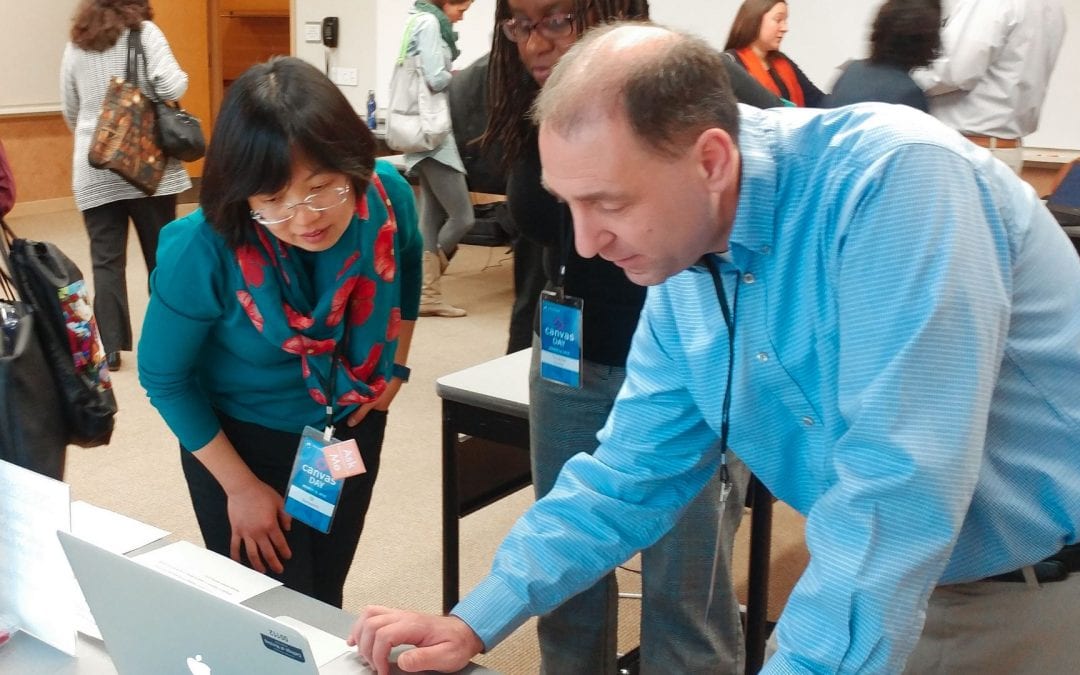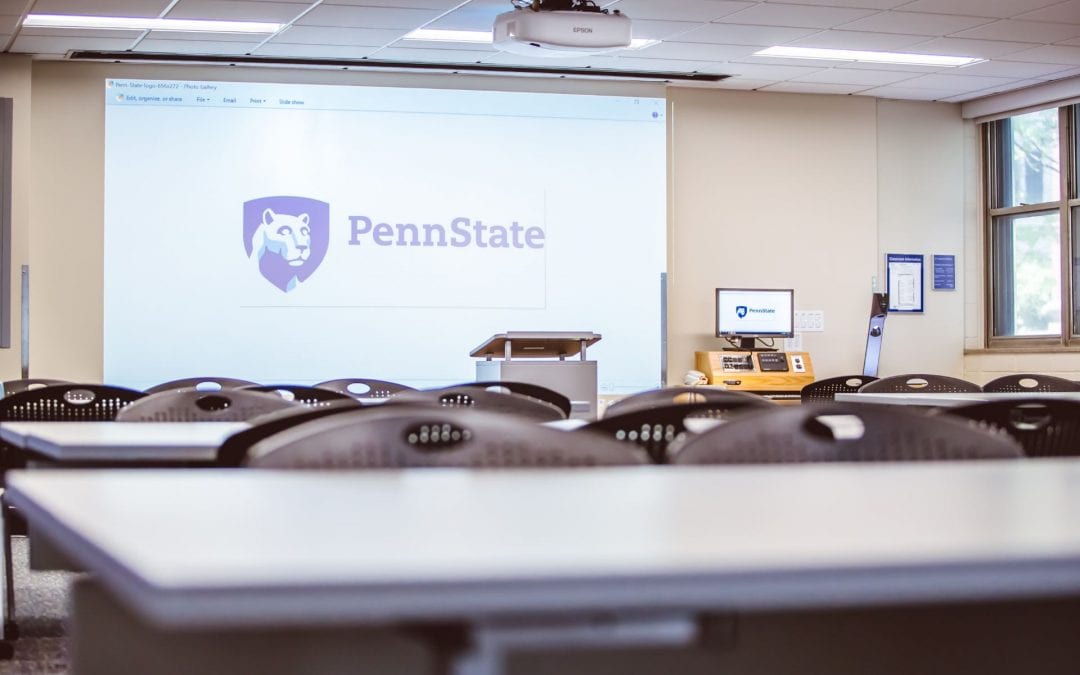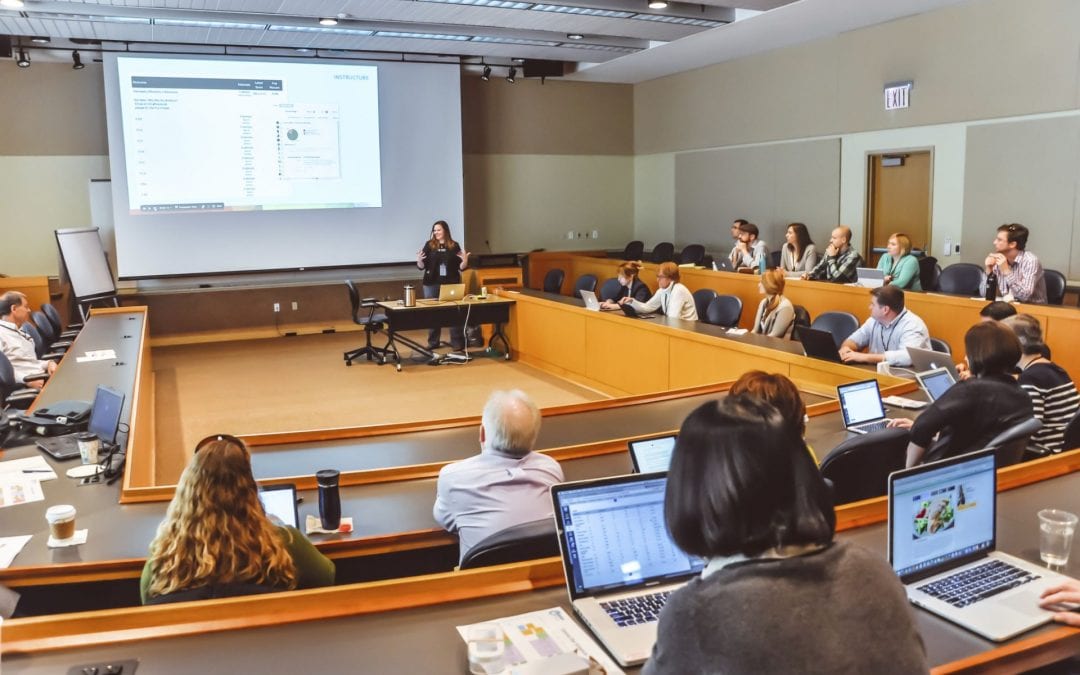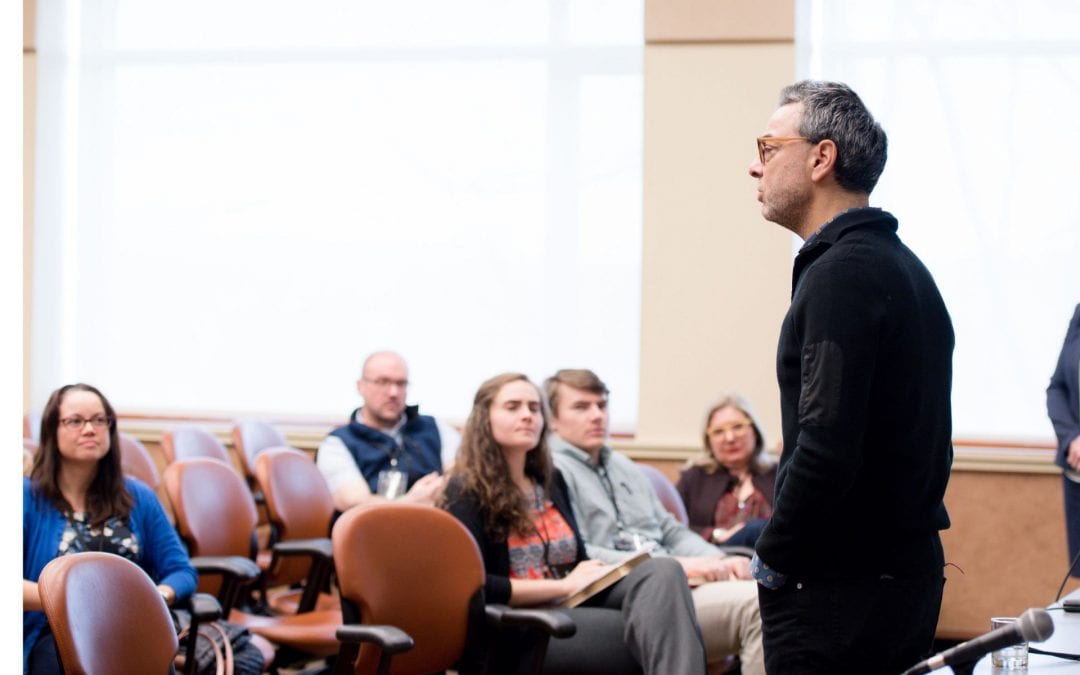
Nov 5, 2018 | Home Page
Penn State Teaching and Learning with Technology invites Penn State faculty and staff to Canvas Day on Friday, March 15, 2019. Canvas Day will be held at The Penn Stater Hotel and Conference Center. Registration is free to attendees. Registration is required and Canvas Day is open to Penn State faculty and staff only.
Canvas Day provides a full day of professional development opportunities that include networking and learning about Canvas best practices with colleagues.
Faculty and staff can submit proposals for session presentations through Monday, Dec. 3, 2018. Topics related to valuable and innovative uses of Canvas to support teaching and learning are encouraged.
For additional information about the call for presentation proposals or general questions related to Canvas Day, please contact canvasday@psu.edu.

Sep 25, 2018 | Home Page
Education professor uses Canvas to run book clubs and host handwritten writer’s notebooks
Note: This is the fifth in a series we are doing called Canvas Success Stories, which look at some of the more engaging ways Penn State faculty are using Canvas to teach.
Amidst teaching and internships, it can be quite the struggle to gather professional and pre-service teachers in a room each week. However, Anne Whitney, a professor of education at Penn State University Park, has devised a blended, or face-to-face and online, solution which uses Canvas for book clubs and writer’s notebooks.
During the summer 2017 Blended Learning Transformation (BlendLT) cohort-based program, Whitney received support for this new way of teaching. BlendLT, offered by Teaching and Learning with Technology at Penn State, helps selected faculty to convert their traditional face-to-face courses into an innovative blended format.
Since fall 2017, Whitney has been using web-based professional development book clubs and handwritten notebooks integrated into Canvas. Her course, LLED 501: Teaching Writing in Elementary and Secondary Schools, focuses on in-class writing and reflection, small-group discussion, and activities which occur in the K-12 classroom. She has modeled the class as a professional learning community.
Whitney has observed high engagement among her students. She has also noticed that she is more organized and has additional free time during the class.
“It helps me to do what I was already doing in class, and it places content in a space where there’s increased visibility to the students,” Whitney said. “There’s now a home space where students turn in and access their work.”
Whitney’s goal is to help her students support younger students in their writing growth.
“I value having a writer’s notebook where the students in the class are doing a lot of pen-and-paper writing and informal writing. It’s ungraded; it’s not a test, it’s not a performance. How can you teach a subject if you don’t practice it?”
Students answer writing prompts in Canvas by either typing their answers into text boxes or uploading video readings or photos of their notebook.
The book clubs were another face-to-face element which only became stronger through Canvas. Along with in-person meetings, students now meet through Zoom and VoiceThread. In VoiceThread, students provide responses to writing prompts via imagery—either through images or video of themselves delivering the answer.
“I still felt I had contact with the physicality of what they were writing, and I still heard their voices. These were pieces I had relied on when I taught every week in person, which Canvas helped me keep present in my class.”




